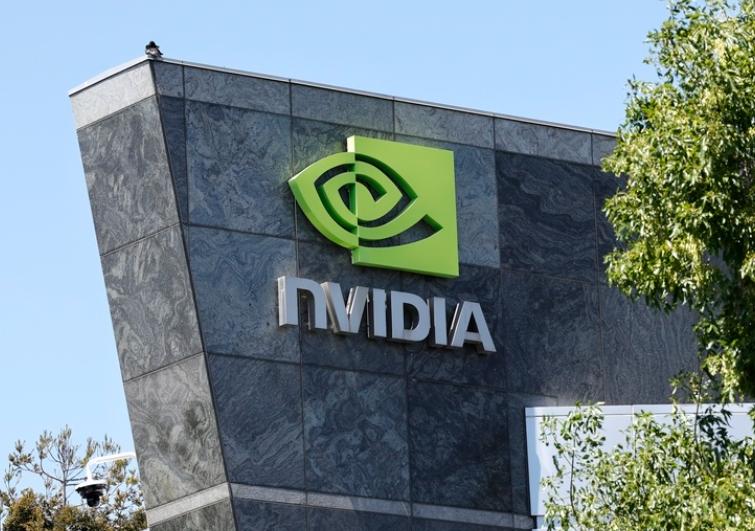
On Tuesday, NVIDIA's stock price rose by approximately 3% to $141.22, with a market value of $3.45 trillion, surpassing Microsoft's $3.44 trillion. It was the first time since January that NVIDIA had regained the top spot as the company with the highest market value. It is reported that NVIDIA's stock price reached a peak of $141.5 on the day, setting a new record high. Its market value had increased by nearly 24% compared to $2.78 trillion (the lowest point of the year) on May 23rd. The 2025 first-quarter financial report showed that its AI chip orders were fully booked until 2026. NVIDIA's strong performance also drove the entire chip sector to rise. Broadcom rose by over 3%, Micron Technology rose by over 4%, and the VanEck Semiconductor ETF tracking a basket of chip stocks rose by 2%. Although Microsoft has an advantage in the cloud computing field, the explosive growth in AI computing power has enabled NVIDIA to obtain a higher valuation premium in the capital market in the short term. Despite tariff concerns, NVIDIA's stock price has soared by nearly 24% in the past month, rising more than 45% since the low point in April, demonstrating that the market still has confidence in its core business and growth prospects.
The sharp rise in NVIDIA's stock price has brought complex and multifaceted impacts to various fields. Firstly, it has an impact on the stock market. NVIDIA holds a weight of up to 7% in the S&P 500 index, and its stock price fluctuations directly affect the index performance. When NVIDIA's stock price rises, it will drive the S&P 500 index up, and vice versa. NVIDIA's strong performance has driven the entire chip sector to rise. For example, Broadcom rose by over 3%, Micron Technology rose by over 4%, and the VanEck Semiconductor ETF tracking a basket of chip stocks rose by 2%. This linkage effect makes the chip sector the focus of market attention. The competition for the top spot among the three tech giants, NVIDIA, Microsoft, and Apple, has become increasingly intense. NVIDIA's overtaking indicates that the capital market's bet on AI infrastructure has surpassed traditional software and consumer electronics sectors, potentially triggering a structural adjustment within the tech sector.
Secondly, it has an impact on financial investors. Investors may re-evaluate their investment portfolios in technology stocks and increase holdings of NVIDIA and other AI chip companies. Thomas Martin, a senior portfolio manager at Globalt Investments, said it is time to increase holdings of NVIDIA stocks. The reverse takeover of NVIDIA's market value may cause fluctuations in investor sentiment. Some investors may be optimistic about the future growth prospects of the AI chip industry, while others may express concerns about the overall valuation of tech stocks. Although NVIDIA's stock price is strong, it still faces policy and market risks. For example, the revenue share of China's data centers has dropped to single digits, and it is expected to further decline in the second quarter. Additionally, export control measures have restricted H20 sales, potentially resulting in an $8 billion revenue loss for the company in the second quarter. Investors need to closely monitor these risk factors to formulate reasonable investment strategies.
Thirdly, it has an impact on the stability of the financial market. The competition for market value between NVIDIA and tech giants like Microsoft and Apple has intensified the volatility of the financial market. Investors need to closely monitor market dynamics and adjust investment strategies in a timely manner to respond to market changes. The reverse takeover of NVIDIA's market value may cause fluctuations in investor sentiment and changes in market expectations. Some investors may be optimistic about the future growth prospects of the AI chip industry, while others may express concerns about the overall valuation of tech stocks. Bank of America analysts calculated that investors expect NVIDIA's performance to cause the stock index to fluctuate by 1%, which is even higher than their estimate of the impact of US inflation data on the stock index. This indicates that the fluctuations in Nvidia's stock price have a significant impact on the stability of the financial market.
To sum up, Nvidia's stock price surpassing Microsoft not only reshaped the competitive landscape of technology stocks and the industry valuation system, driving capital to accelerate its flow into the AI chip sector and triggering a structural adjustment in investment strategies, but also significantly enhanced the sensitivity of the financial market to the performance of a single enterprise, becoming a key variable that affects global capital flows and financial stability.

A new survey released in the United States shows that in the context of rising prices and growing concerns among the public about the economic outlook of the country, there is a coexistence of frugality and differentiation.
A new survey released in the United States shows that in th…
By the end of 2025, the situation in the Middle East resemb…
According to Channel NewsAsia, international oil prices hav…
On Sunday, US President Donald Trump Trump met with Ukraini…
Officials in the Trump administration, speaking on Fox News…
In 2025, the Trump administration reshaped the global trade…